Examines the process of decentralization during the 1996-97 school year across the Philadelphia School District as part of the Children Achieving Challenge. Principal research questions include: 1) How is Children Achieving strengthening schools’ capacity to make and carry out informed decisions that lead to schoolwide standards-based instructional reform? 2) How are the new structures at various levels of the system working? 3) In the context of a decentralizing system, how is the district resolving questions about what kind of guidance to provide schools? The authors provide an overview of the new school system in terms of administration, demographics, and performance statistics. The report also describes the current state of affairs across schools regarding issues such as school-based decision making, local school councils, and small learning communities. School clusters, developed around comprehensive high schools, have helped to achieve many of the decentralization goals outlined by Children Achieving but still need much improvement. Additionally, the Central Office of the District needs to reexamine its role in a decentralized school system. The report gives recommendations to help the District fully adapt to decentralization as part of a successful reform plan. Small learning communities are discussed in this report on pages 22-27. Also, the Children Achieving Theory of Change used clusters–constituted by a comprehensive neighborhood high school and its feeder middle and elementary schools. ‘Clusters are a key structural support in the Children Achieving theory of how to improve schools and student achievement’ (30). The report discusses how cluster staff viewed their roles (e.g. as brokers or as direct agents of change) (see pp.48-53). ‘During 1995-96 the Children Achieving Challenge focused on leadership development and changing the culture of the central office. Challenge staff said they also focused on curriculum and instruction during 1996-97’ (65). ‘The Children Achieving Challenge established seven Work Groups, each made up of school district personnel from the central office, clusters, the Philadelphia Federation of Teachers and, in some cses, schools and representatives from critical partners including Philadelphia Education Fund, universities, and city agencies’ (66).
Children Achieving: Guidance for School Improvement in a Decentralizing System: How Much, What Kind, and From Where?
Related Publications
Publication
The Implementation, Impact, and Cost Effectiveness of Developmental Education Reform in California’s Community Colleges, Interim Report #3
Kri Burkander, Dae Y. Kim, Lauren Schudde, Mark Duffy, Taylor Stenley, Alita Robinson, Julia Ransom, Justis Freeman, Alexis O’Herrick, Lindsey Liu
Publication
Literacy Practice Guides: Lessons from Four Philadelphia Literacy Pilot Programs Moving Students from Phonics to Fluency
Publication
Bringing History to Life: An Evaluation of the Penn Museum’s Unpacking the Past Program
Tracey A. Hartmann, Taylor Stenley
Publication
Educational Outcomes for Boys & Girls Club Members in California, 2021-22
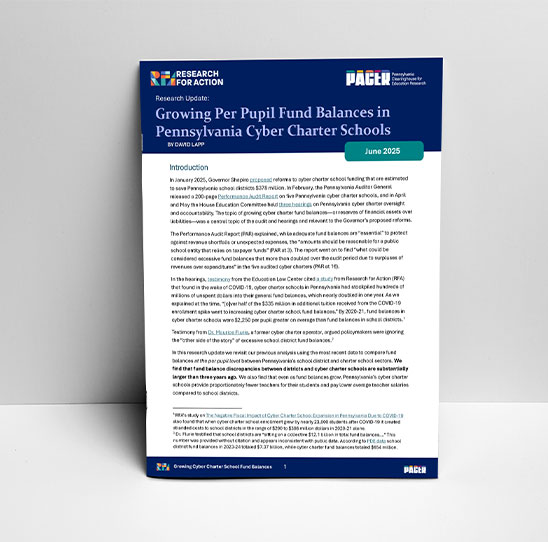
Publication
Growing Per Pupil Fund Balances in Pennsylvania Cyber Charter Schools
David Lapp
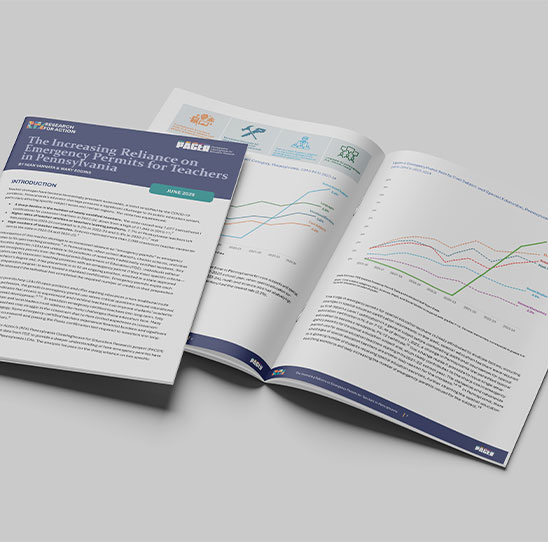
Publication
The Increasing Reliance on Emergency Permits for Teachers in Pennsylvania
Sean Vannata, Mary Eddins
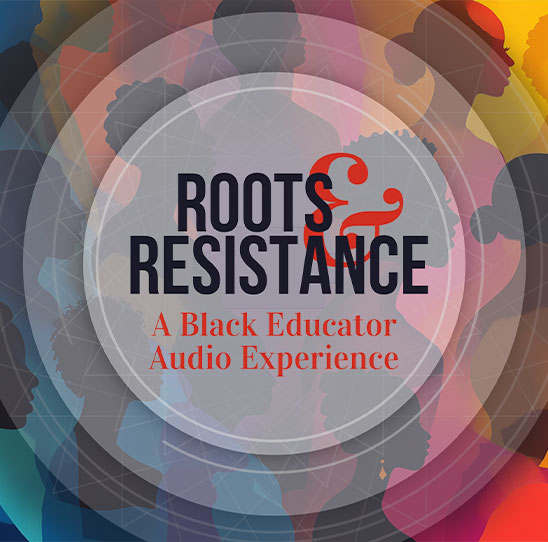
Publication
Small But Mighty – An Audio Documentary
Siettah Parks, Kevin Burgess, Alita Robinson, Mary Eddins
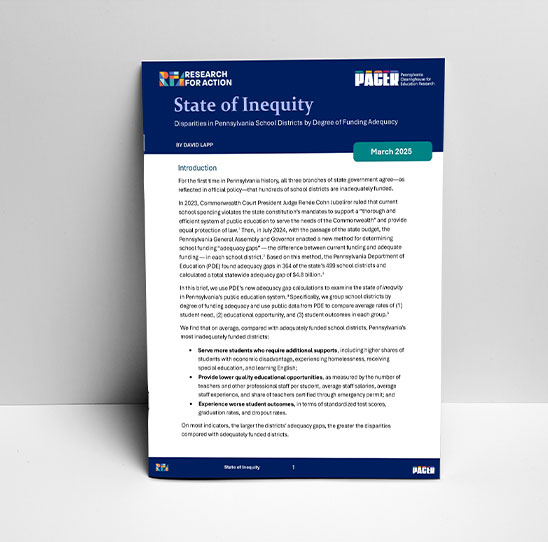
Publication
State of Inequity: Disparities in Pennsylvania School Districts by Degree of Funding Adequacy
David Lapp

Publication
Patterns of Student Mobility Among English Learner Students in Public High Schools in Philadelphia
Lindsey Liu, Sean Vannata
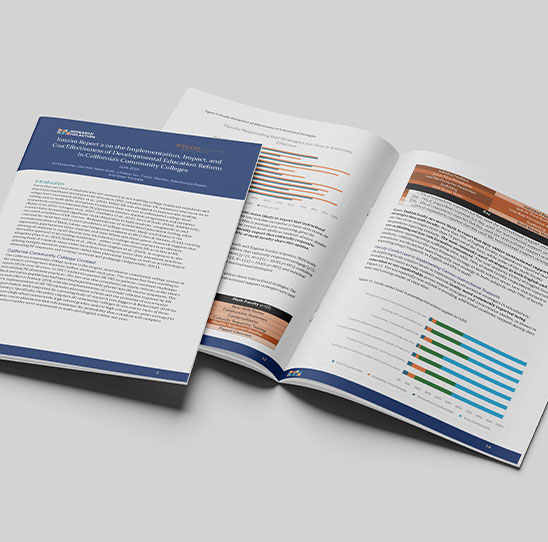
Publication
Interim Report 2 on the Implementation, Impact, and Cost Effectiveness of Developmental Education Reform in California’s Community Colleges
Kri Burkander, Dae Y. Kim, Mark Duffy, Lindsey Liu, Taylor Stenley, , Sean Vannata
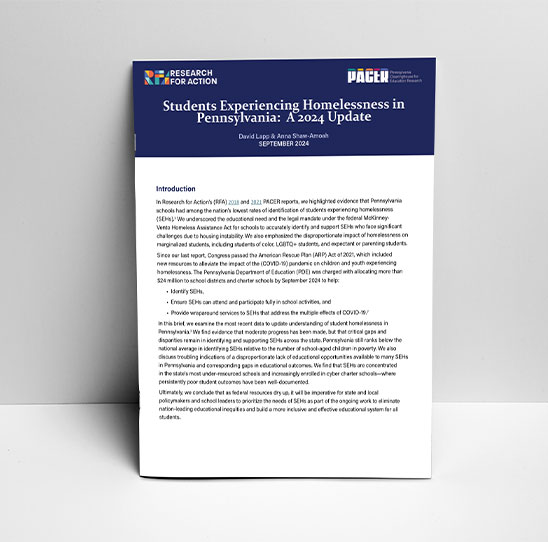
Publication
Students Experiencing Homelessness in Pennsylvania: A 2024 Update
David Lapp, Anna Shaw-Amoah

Publication
The When and How of Keystone Exams in the School District of Philadelphia
Molly Pileggi, Sean Vannata, Alyn Turner